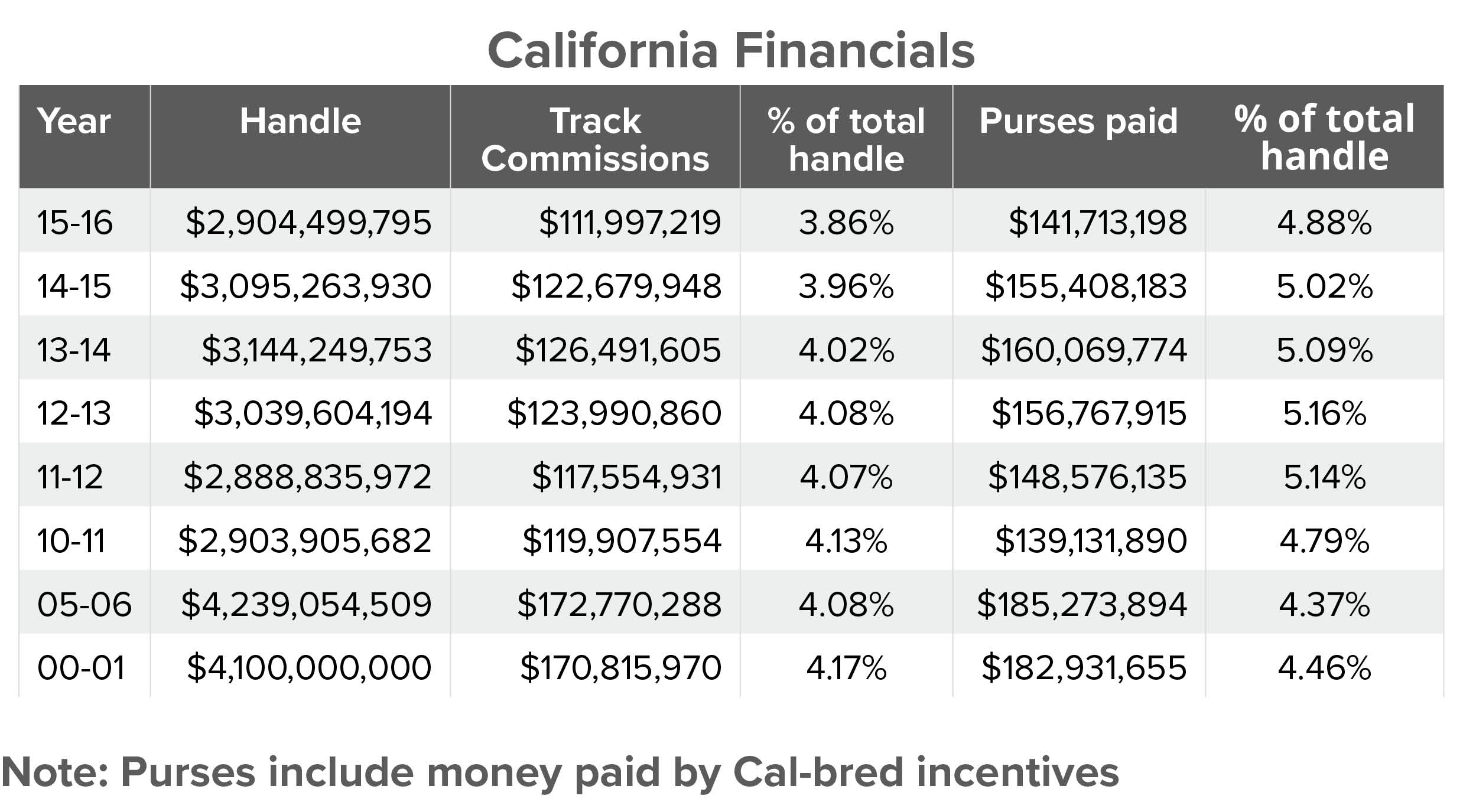In fiscal year 2016, money wagered on California race cards was similar to the wagering total in FY2011, but compared with FY2011 California racetracks collected nearly $8 million less from the nearly identical betting total.
The California Horse Racing Board's annual report released earlier this month documents the challenge racing faces as the percentage of pari-mutuel money generated for tracks' and horsemen's purses declines as more handle shifts to advance-deposit wagering outlets.
Under racing's business model, after winning wagers are paid, the bulk of remaining pari-mutuel money has typically gone to tracks and purses. But as more bettors have chosen to wager through ADW sites, that third player in the equation also has to be paid, resulting in smaller percentages for tracks and purses.
In FY2016, $2,904,499,795 was wagered on California racing--for all breeds. That figure was nearly identical to FY2011, at $2,903,905,682. But the wagering in FY2016 only generated $111,997,219 for tracks compared with $119,907,554 in FY2011, a 6.6% decline.
A shift in wagering habits is behind the decline in pari-mutuel revenues generated for tracks. In FY2011, ADW handle through the licensed California ADW companies accounted for 21.1% of wagering on state tracks. In FY2016, that percentage ballooned to 30.4%, including 38% of the wagers by California residents. Because a percentage of that money goes to ADWs, there's not as much money left for track commissions and purses.
In FY2011, 4.79% of money wagered on California races went into the purse account. With a takeout increase ahead of FY2012 that committed a larger percentage of money to purses, that percentage would increase to 5.14%, but with wagering shifting to ADWs in the years that have followed, that percentage also has come down, checking in at 4.88% in FY2016.
Of course if the amount of pari-mutuel wagering was increasing, there'd figure to be more money for all involved and everyone would be happy--but that hasn't occurred. It's also safe to say that without the ADW option, total handle would have decreased rather than remain stagnant in recent years.
The ADW companies certainly deliver convenience but debate centers on the pricing of that service. In a message from Chuck Winner that begins the FY2016 annual report, the CHRB chairman said ADW companies will be asked to contribute more to the industry. He outlined the CHRB's efforts to use geo-location to count as on-track wagers bets made by on-track patrons who use their ADWs to make wagers. Winner said the CHRB also will require profit and loss statements from ADW companies and has asked ADW companies to voluntarily do more for California racing and equine charities.





